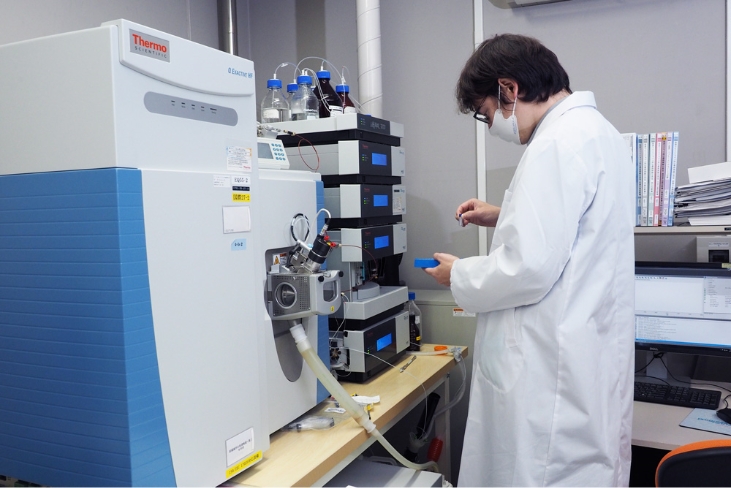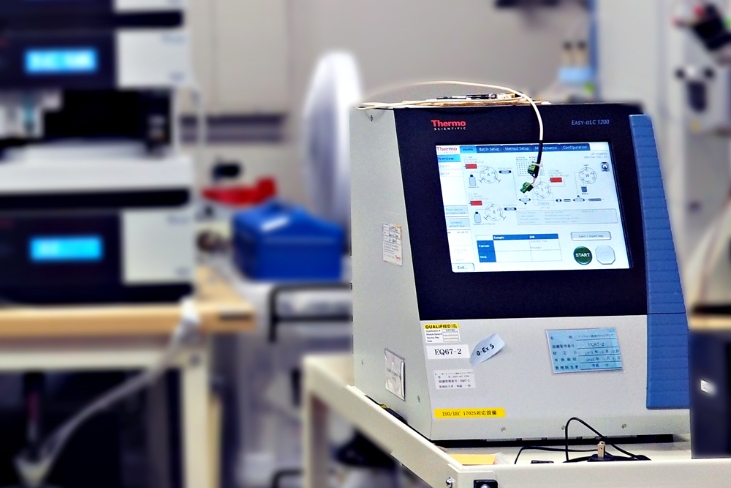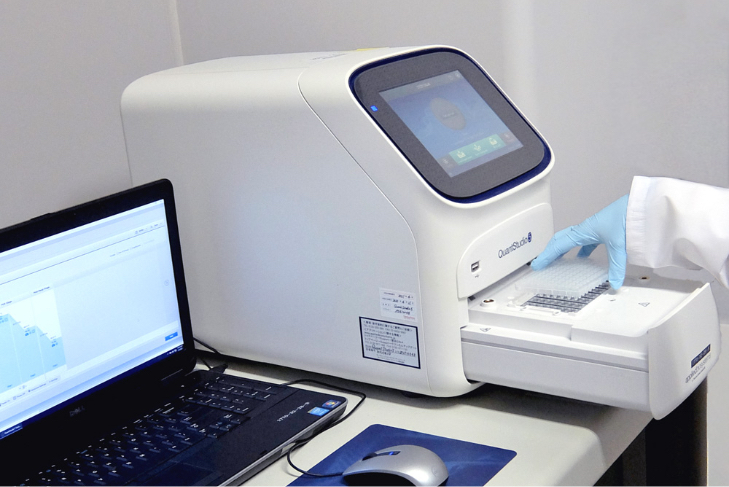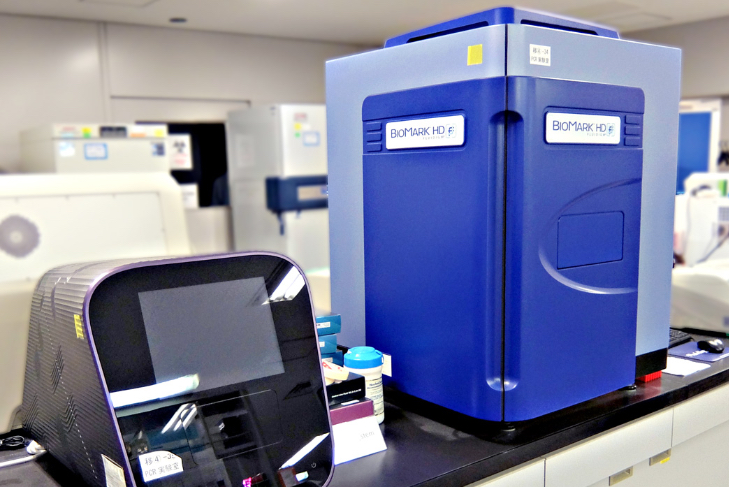Research Activities
Drug Analysis
Department (DAD)
The Drug Analysis Department (DAD) is actively participating in various types of research and development work with the major objectives of ensuring the integrity of horseracing and continuous advancement in analytical technologies for doping control. The research and development work can be generally divided into 3 different categories:
-
1. Pharmacokinetic study
To establish the strategies for doping control, pharmacokinetic (PK) information is essential. In general, when the horse is exposed to a drug, the drug will mainly be hepatically metabolized into hydrophilic metabolites and the metabolites (and/or parent intact drug) are then excreted into urine. The concentrations and clearances of the parent drug and its metabolites can be very different among blood, urine and other tissues. Therefore, it is critical to identify the more appropriate monitoring substances in terms of stability and detection times to achieve the primary objective of doping control. For the therapeutic medications in Japan, it is also important to establish the PK properties (i) to recommend the withdraw times to the regulatory veterinarians; (ii) to optimize the appropriate regimens for the therapeutic drugs based on pharmacokinetic/pharmacodynamics (PK/PD) studies; and (iii) to propose the applicable screening limits, if necessary, for the laboratory to be used as reference. Relevant administration studies are regularly conducted mainly for therapeutic medications commonly used in Japan, international collaboration and the contribution to the establishment of International Screening Limits.

-
2. Investigative work
For most of the positive drug cases in Japan, DAD would conduct a thorough comprehensive investigative work to assist the racing authorities to investigate and identify the possible root causes of the problems. In addition, for naturally-occurring contaminants from environment or other sources that may cause potential positives in the local domestic samples, DAD would also conduct necessary investigative and research work to set up applicable internal confidential screening action levels.

-
3. Method development for continuous advancement in drug detection in equine biological samples and the identification of novel biomarkers for doping control
DAD continually develops and improves conventional analytical methods to detect and identify drugs in equine biological samples in order to catch with the latest doping trend. Apart from that, technical innovations have become increasingly sophisticated to alter the horse’s performance in racing by using various prohibited substances (e.g. custom-synthesized designer drugs, prodrugs, etc.) and prohibited practices (e.g. shock wave therapy, gene editing, etc.). In order to expand our detection capability to tackle such problems, relevant research and development work has been commenced to employ “omics” strategy by means of detection of appropriate biomarkers as a new approach of doping control.


Genetic Analysis
Department (GAD)
The Genetic Analysis Department (GAD) has actively taken part in the international Horse Genome Workshop and contributed to the creation of linkage maps, chromosome maps and reference genome sequences with the major objective to establish a genetic basis to provide an unprecedented insight into the genetic background of phenotypic traits, such as disease resistance, reproduction and breeding. Currently, GAD also contributes to the horse’s Functional Annotation of ANimal Genomes (FAANG) project, which aims to identify functional regulatory elements in the horse genome.

With extensive knowledge in various genetic researches, GAD could successfully examine the effectiveness of genome-wide association studies (GWAS) in horses to have identified the relevant regions involved in several horse traits, such as body weight and fracture. In addition, GAD also investigated different genetic regions that can affect the performance of the racehorses in Japan and successfully identified three single nucleotide polymorphisms (SNPs) in the intergenic region near the myostatin gene as a negative regulator of skeletal muscle growth. These SNPs are critical to safeguard the integrity of horseracing with respect to potential welfare, safety, performance and fairness.

Gene doping is one of the hottest topics in human and animal sports and the introduction of the gene doping detection tests for doping control for horseracing is definitely imminent. GAD has been conducting research and development work in gene doping for years and have developed and published different gene doping-related screening and confirmation test methods. Apart from that, GAD also commenced to develop methods for the identification of relevant biomarkers based on transcriptomics approaches to distinguish between endogenous and exogenous substances in an anti-doping context.

